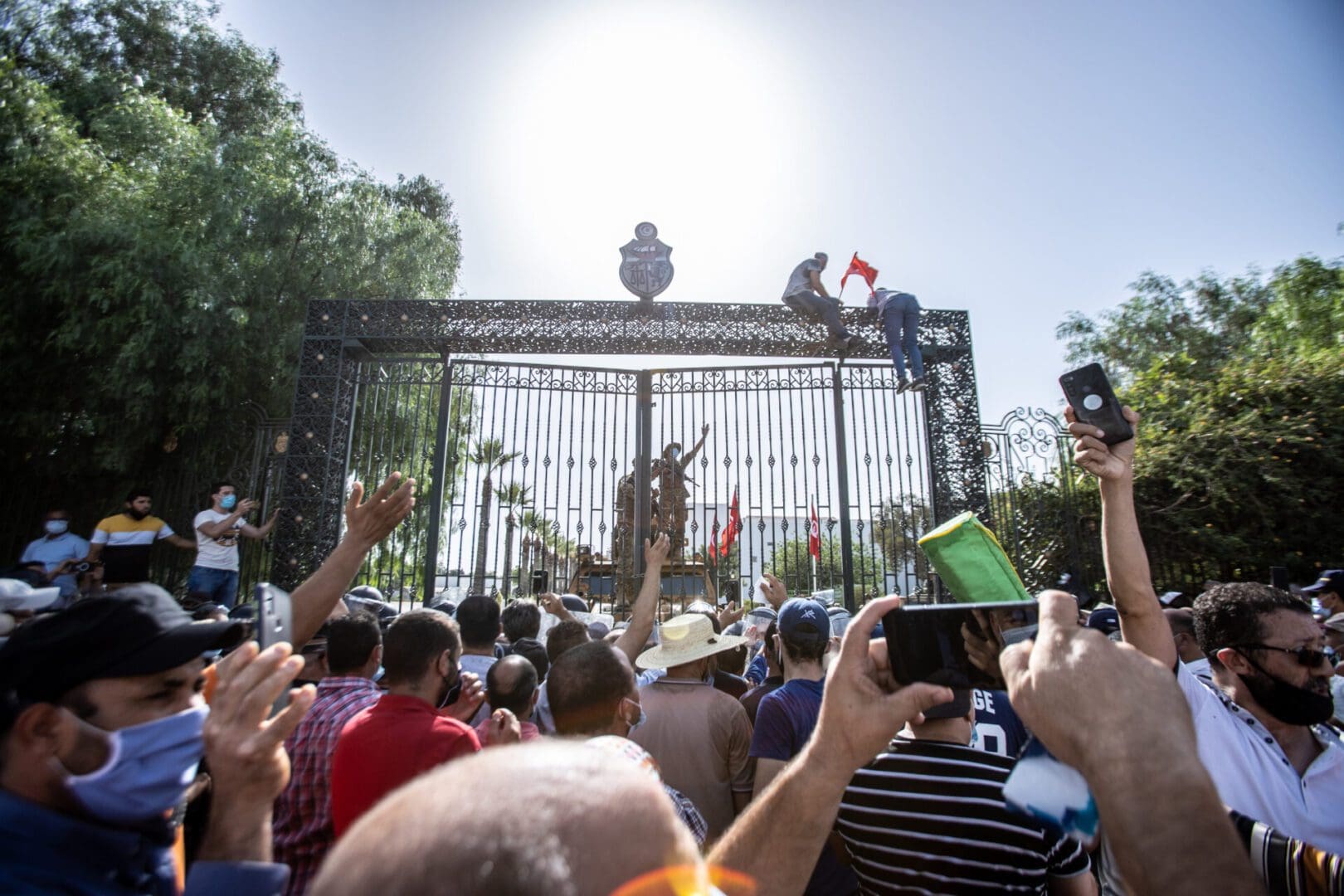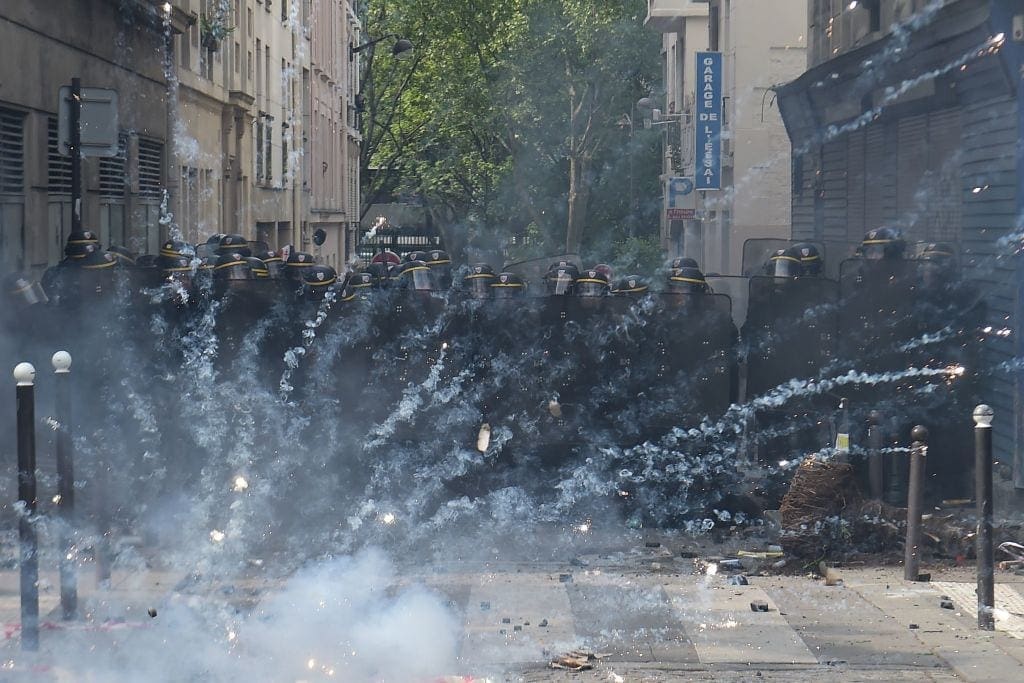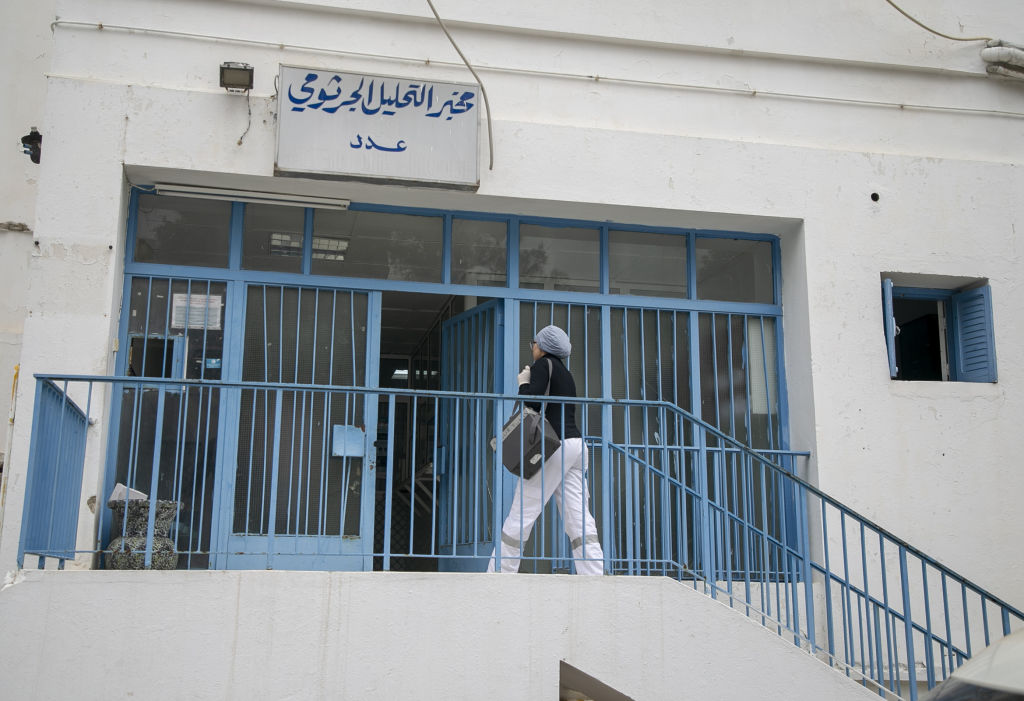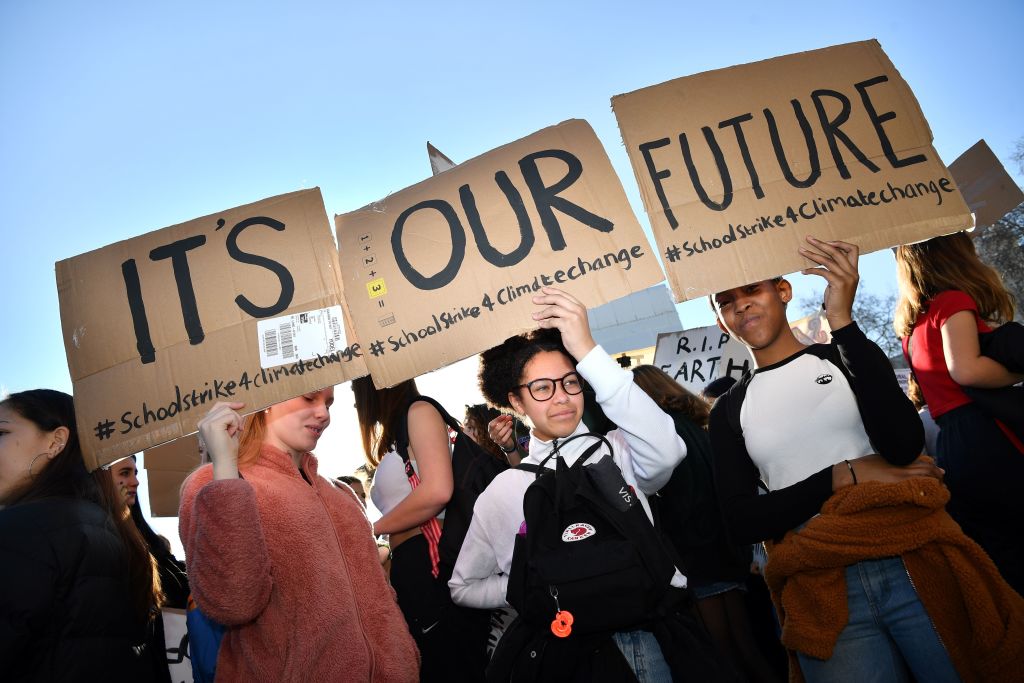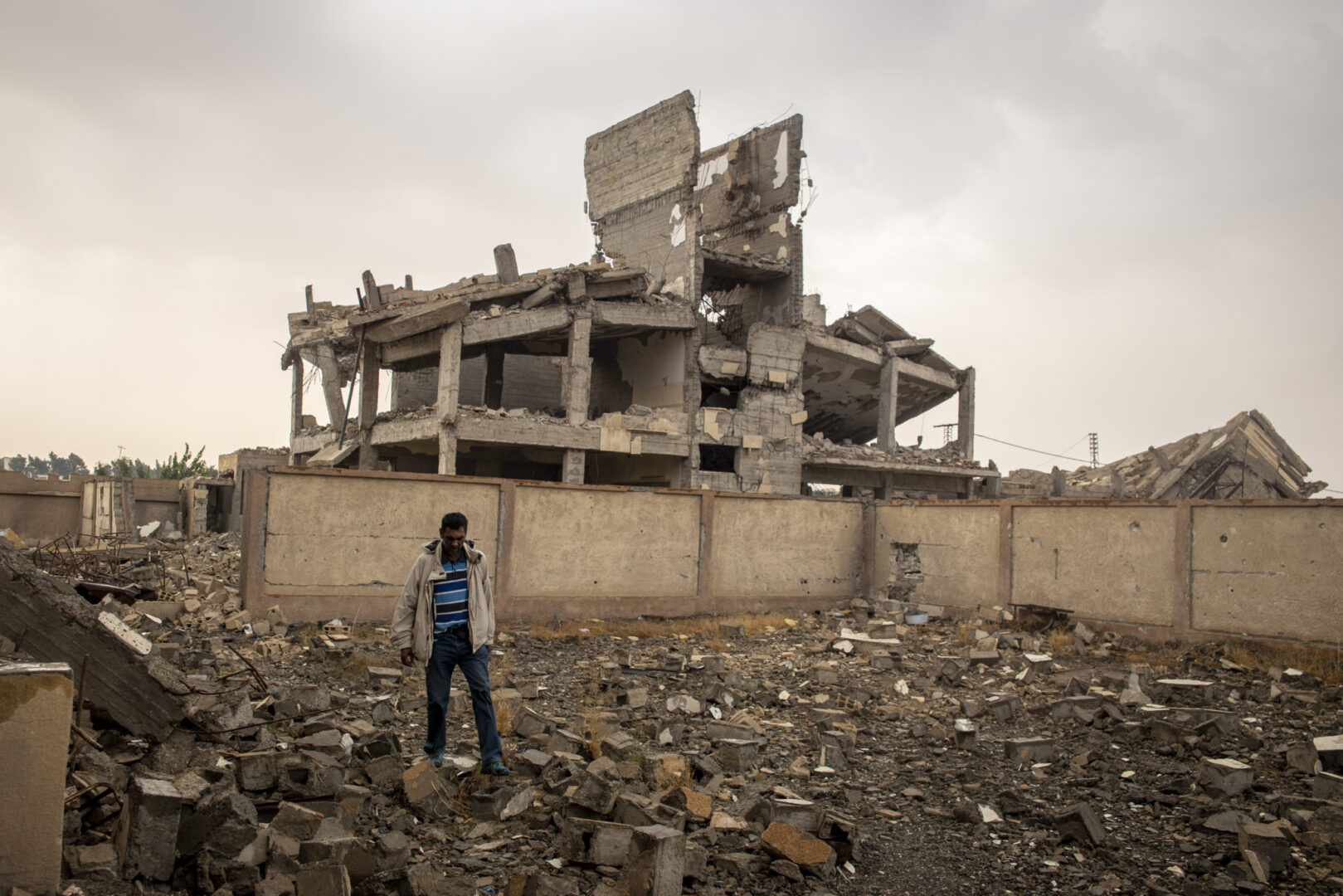Tunisia held a constitutional referendum on 25th July 2022, confirming the broad powers that President Saied seized exactly a year earlier. Parliamentary elections are supposed to be held on December 17th 2022. In the meantime, the first women Prime Minister in the Arab world Najla Bouden governs the state of political turmoil since President Saied invoked emergency powers, dismantled the parliament, lifted immunity for its members, and stated that he will personally preside over the public prosecution of ex-parliamentarians. The previous Prime Minister Hichem Mechichi, was dismissed in 2021 by President Saied, whose government was responsible for a sharp deterioration of human rights in Tunisia and poor management over the Covid-19 crisis. President Saied’s power grab was possible also because the Constitutional Court, which was due to be set up in 2015, was still not established as Parliament repeatedly failed to elect the first third of the Court’s members.
President Kaïs Saïed has continued efforts to concentrate power in his hands following his power grab in 2021. He also issued decree-laws to dismantle key institutional safeguards for human rights, notably attacking judicial independence and the right to freedom of expression. Authorities used unlawful force to disperse protesters, and targeted high-profile critics and perceived enemies of the president with prosecutions and arbitrary detentions. The right to freedom of association was threatened. A decree-law to amend the electoral law undid legislative measures to promote women’s participation in parliament. Tunisia continued to penalize consensual same-sex relations between adults.
Urgent Actions
ONLINE ACTION: End human rights backsliding in Tunisia
Please take 10 seconds to send this letter to President Saied asking him to reinstate basic human rights in Tunisia, such a
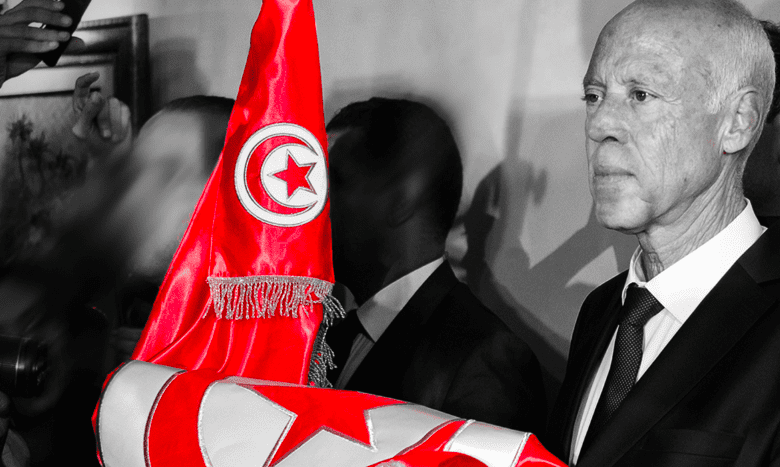 Stop the prosecution of civilians before military courts.
Stop the prosecution of civilians before military courts.
Reinstate the recently dissolved High Judicial Council and protect judges from dismissal by the President.
Refrain from adopting new legislation that would threaten freedom of association.
Human Rights
The concentration of power in President Saïed’s hands creates an environment conducive to rights abuses. Also, his rhetoric and actions undermine the very meaning of the rule of law. Saïed rejects the political class and all civil actors through demonizing rhetoric, calling his opponents and anyone who doesn’t agree with his views “traitors” or corrupt people. After President Kais Saied’s take over, Amnesty International reported widespread use of arbitrary travel bans in Tunisia while bypassing the judiciary. At least 50 people, including judges, senior state officials and civil servants, businessmen, and a parliamentarian, were barred from travelling abroad over the past month without any judicial authorization, written order, reasons or timeframe for the ban. The total number facing travel bans since 25 July 2021 is likely to be far greater. Also, since President Kais Saied’s take over, Amnesty International has also reported an increase in cases of defamation together with increased use of Military courts targeting civilians. In a very recent move, President Saied declared to shut down Tunisia’s High Judicial Council, an independent judicial oversight body set up after the country’s 2011 revolution to shield judges from government influence, and granted himself absolute power to fire judges summarily. This poses a serious threat to judicial independence and fair trial rights in the country. Finally, Amnesty International is extremely concerned about the plans to restrict civil society organizations that are an essential internal actor for providing essential services to the public and holding the government accountable.
During Covid-19 pandemic, Amnesty International reported diverse human rights issues. In one of the latest reports in December 2021 we called on the authorities to halt the implementation of a Covid-19 decree-law that will deny anyone aged 18 or above without a vaccine pass access to many public and private spaces, ban them from working in the public-sector or salaried private-sector jobs, and – if they are Tunisian citizens – bar them from travelling abroad. During the economic recession, exacerbated by the Covid-19 pandemic, protests continued over the lack of employment opportunities, poor living conditions, and water shortages, particularly in marginalized and underdeveloped regions. People financially impacted by the COVID-19 crisis protested in several governorates, accusing local authorities of corruption and demanding increases and more transparent distribution of government aid. Protests were staged against insufficient government protection of health workers during the pandemic.
General and persistent human rights main concerns are that bloggers and social media users were investigated or prosecuted for the peaceful online expression of their views, including for criticizing the government’s approach to dealing with COVID-19. Protests were staged against insufficient government aid and the protection of health workers during the pandemic. Refugees and asylum-seekers were detained for irregular entry into Tunisia. Arbitrary detention of undocumented migrants in reception centres continued. Lesbian, gay, bisexual, transgender and intersex (LGBTI) people were arrested and detained for consensual same-sex sexual relations. The government published in the official gazette the final report of the Truth and Dignity Commission, and trials continued before specialized criminal chambers of people accused of human rights violations committed between 1956 and 2013.
Finally, it is worth mentioning that authorities renewed four times the nationwide state of emergency in place since November 2015.
Updated on 12/04/2022
Contact
For more information on Amnesty International’s work on Tunisia, refer to the links below or contact the AIUSA Tunisia Coordination Group.
Relevant Links
- 2022/23 Annual Global Report on Human Rights
- Tunisia: 16 civil society organizations call for the immediate release of Issam Bouguerra
- Tunisia: Repeal Draconian Cybercrime Decree
- Tunisia: Filmmaker jailed for drug use denied health care: Issam Bouguerra
- Tunisia: Reinstate revoked judges and prosecutors
- Tunisia: New draft constitution undermines independence of Judiciary and weakens human rights safeguards
- Tunisia: Arbitrary dismissals a blow to judicial independence
- Tunisia: New anti-speculation law threatens freedom of expression
- Tunisia: Looming curbs on civil society must be stopped
- Tunisia: President’s moves to shut down High Judicial Council pose grave threat to human rights
- Tunisia: Further information: Parliamentarian facing trial by military’s court: Yassine Ayari
- Tunisia: Amend excessive Covid-19 restrictions banning all public gatherings
- Tunisia: Ex-minister and official arbitrarily detained: Noureddine Bhiri and Fathi Beldi
- Tunisia: Authorities must halt implementation of overly restrictive vaccine pass
- Tunisia: Alarming increase in number of civilians facing military courts
- Tunisia: LGBTI rights defender violently attacked: Badr Baabou
- Tunisia: Carving up the Constitution represents a threat to human rights
- Algerian refugee deported from Tunisia now imprisoned in Algeria
- Tunisia: Parliamentarian convicted by military court: Yassine Ayari
- Tunisia: President must lift arbitrary travel bans
- Human Rights in Tunisia Must Be Upheld Following Suspension of Parliament
- Tunisian authorities must accelerate fair access to vaccines, as Covid-19 cases soar
- Tunisia: COVID-19 Vaccination Plan must be Fair and Transparent
- Tunisia: Death following violent arrest highlights cycle of police impunity
- Tunisia: The tragic truth about domestic violence
- Tunisia: Rescind ministerial order censoring health workers over Covid-19
- MENA: COVID-19 amplified inequalities and was used to further ramp up repression
- Tunisia: Release prominent LGBTI rights activist jailed for insulting police
- Global: Fresh evidence of police misuse of tear gas leading to protesters’ deaths and injuries – updated investigative website
- Tunisia: Investigate circumstances of a young man’s death following reckless tear gas use by police
- Tunisia: Authorities must refrain from using unnecessary and excessive force against protesters
- Tunisia: Struggle for justice and reparation continues for victims 10 years after the revolution
- Tunisia: 10 years on, victims are still awaiting justice
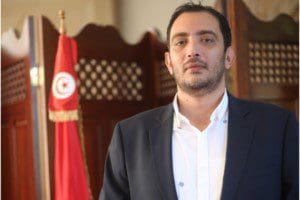 President Saïed rejects the political class and all civil actors through demonizing rhetoric, calling his opponents and anyone who doesn’t agree with his views “traitors” or corrupt people. We have documented many cases of defamation including Yassine Ayari, Noureddine Bhiri and Fathi Beldi and his lawyer Abderrazak Kilani, cases that we have followed closely. In February 2022 we have also condemned President Saied declaration of shutting down Tunisia’s High Judicial Council, an independent judicial oversight body set up after the country’s 2011 revolution to shield judges from government influence. He then granted himself absolute power to fire judges summarily and confirmed the dependence of the judiciary on the constitution.
President Saïed rejects the political class and all civil actors through demonizing rhetoric, calling his opponents and anyone who doesn’t agree with his views “traitors” or corrupt people. We have documented many cases of defamation including Yassine Ayari, Noureddine Bhiri and Fathi Beldi and his lawyer Abderrazak Kilani, cases that we have followed closely. In February 2022 we have also condemned President Saied declaration of shutting down Tunisia’s High Judicial Council, an independent judicial oversight body set up after the country’s 2011 revolution to shield judges from government influence. He then granted himself absolute power to fire judges summarily and confirmed the dependence of the judiciary on the constitution.
We asked the Tunisian government to stop using Military courts targeting civilians, mostly political opponents.
Finally we have reported widespread use of arbitrary travel bans while bypassing the judiciary. At least 50 people, including judges, senior state officials and civil servants, businessmen, and a parliamentarian, were barred from travelling abroad over the past month without any judicial authorization, written order, reasons or timeframe for the ban. The total number facing travel bans since 25 July 2021 is likely to be far greater.
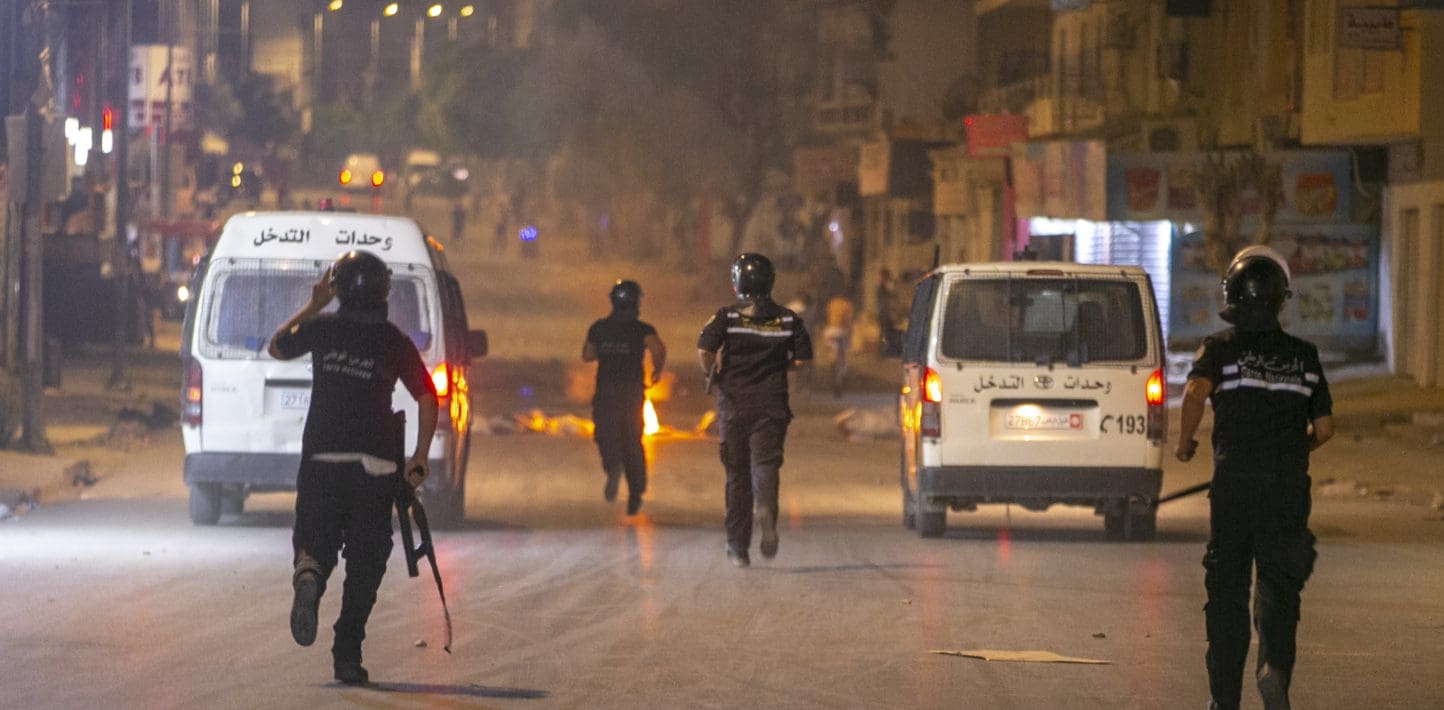 Police use unnecessary and excessive force during protests.
Police use unnecessary and excessive force during protests.
In Tunisia today, torture and other ill-treatment cases during arrest and while in police custody almost always go unpunished. It is outrageous that there has not been a single successful prosecution of a security officer for torture by criminal courts.
Tunisian authorities must conduct an impartial and effective investigation into the suspicious circumstances of Ahmed Ben Amara’s death on June 8th 2021. His death has sparked outrage precisely because Tunisians do not believe the perpetrators will be held accountable.
Following Ahmed Ben Amara’s death, clashes erupted over the following days between the residents of the Sidi Hassine neighbourhood and security forces. Amnesty International documented six cases of severe ill-treatment and direct targeting of the protesters with unlawful force. On 9 June, police officers beat and stripped naked a 15-year old boy, Fedi Harraghi, on one of the main avenues in Sidi Hassine, following Ahmed Ben Amara’s funeral.
Every January, Tunisia faces a wave of protests that are routinely suppressed. In 2021 Haykal Rachdi a young man who was seeking a better future died during protests. To date, none was held accountable.
In another instance, in June 2020 when dispersing a peaceful three-week protest known as the El-Kamour sit-in in the southern governorate of Tataouine, the police fired tear gas recklessly in densely populated residential areas with some canisters landing inside homes and near to a hospital. At least 11 protesters who were arbitrarily arrested during the dispersal said they were insulted, kicked, dragged along the ground, beaten with batons or firearm butts, even when they did not resist. Injured protesters were left in police stations for hours before being taken to the hospital to receive urgent medical care.
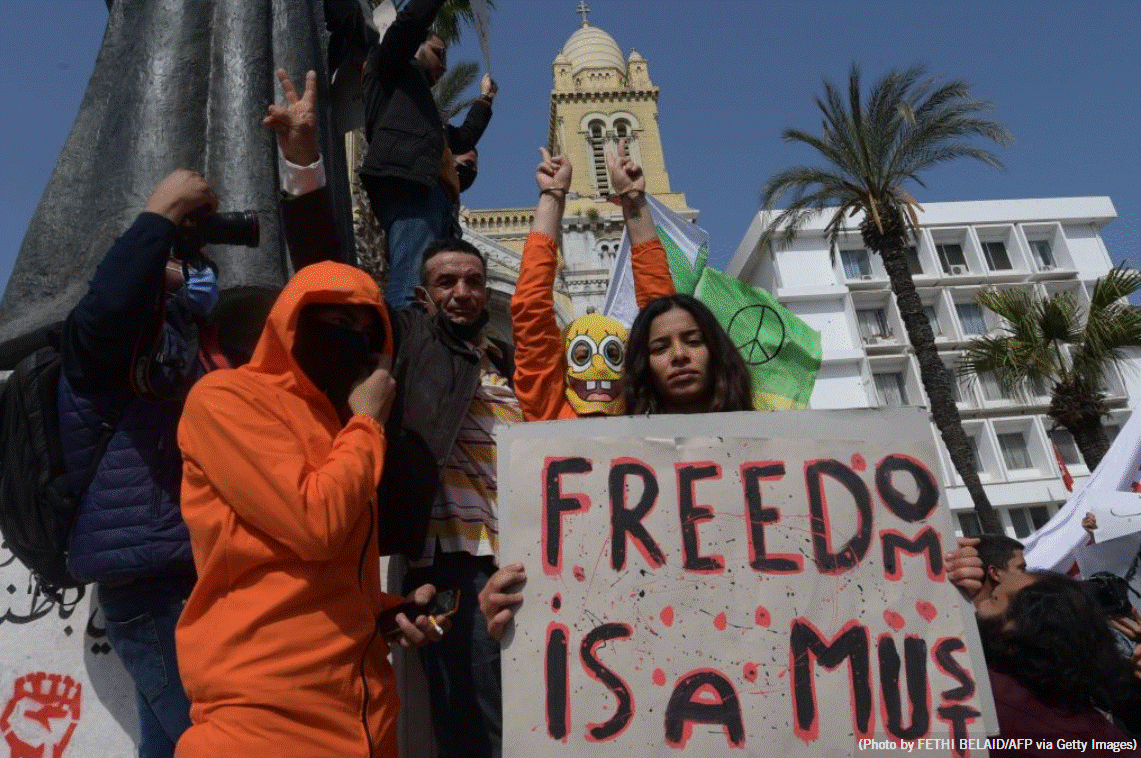 Government critics have multiple times faced limitations of their freedom of expression. Plans to restrict civil society organizations and anti-speculations law are focussing the heart of Tunisian freedom of expression.
Government critics have multiple times faced limitations of their freedom of expression. Plans to restrict civil society organizations and anti-speculations law are focussing the heart of Tunisian freedom of expression.
In 2021 and 2022 we campaigned for Yassine Ayari, an outspoken parliamentarian and whistle-blower who exposed several corruption cases in Tunisia, has multiple prosecutions against him following his statements criticizing the government.
In November 2020, Amnesty International released a report documenting a pattern of criminal investigations and prosecutions of young activists in relation to their peaceful exercise of freedom of expression on social media. In several cases, young activists were summoned for criticizing the government’s response to Covid-19.
On 16 April 2021, the Tunisian Ministry of Health issued a directive stating that only a specified list of representatives from the health sector are authorized to make statements to the media or on social media in relation to the pandemic. Doctors and other Ministry of Health workers whose names are not listed may face disciplinary and criminal punishment if they speak to journalists or post on social media without prior authorization.
In 2020 at least nine bloggers and social media users were investigated or faced criminal prosecutions for publishing online posts critical of local authorities, the police or other state officials under restrictive Penal Code and Telecommunications Code provisions that criminalize “insult”. In five of these cases the people were detained for periods ranging between a few hours and two weeks. Police unions openly threatened to press charges against people for legitimate criticism of police conduct.1
In April 2020, police arrested two bloggers, Anis Mabrouki and Hajer Awadi, after they criticized on Facebook local authorities’ distribution of aid during lockdown. On 13 April, the prosecution of the Court of First Instance of El-Kef city charged Hajer Awadi with “insulting a civil servant” under Article 125 of the Penal Code and “causing noises and disturbances to the public” under Article 316, in reference to an altercation that took place between her and a police officer who tried to stop her from filming live on the street. On 15 April, Anis Mabrouki was charged with “causing noises and disturbances to the public” and “accusing public officials of crimes related to their jobs without furnishing proof of guilt.”
In July 2020, the Court of First Instance of Tunis sentenced blogger Emna Chargui to six months in prison after convicting her on charges relating to a satirical social media post she shared that was deemed “offensive to Islam”. The charges were “inciting hatred between religions through hostile means or violence” and “offending authorized religions” under Articles 52 and 53 of the Press Code, respectively. On 8 October 2020, Myriam Bribri, an anti-impunity activist, appeared before the Court of First Instance in Sfax after being charged the same day under Article 86 of the Telecommunications Code following a complaint from the Secretary General of a security forces union in Sfax, accusing her of “insulting the police”.
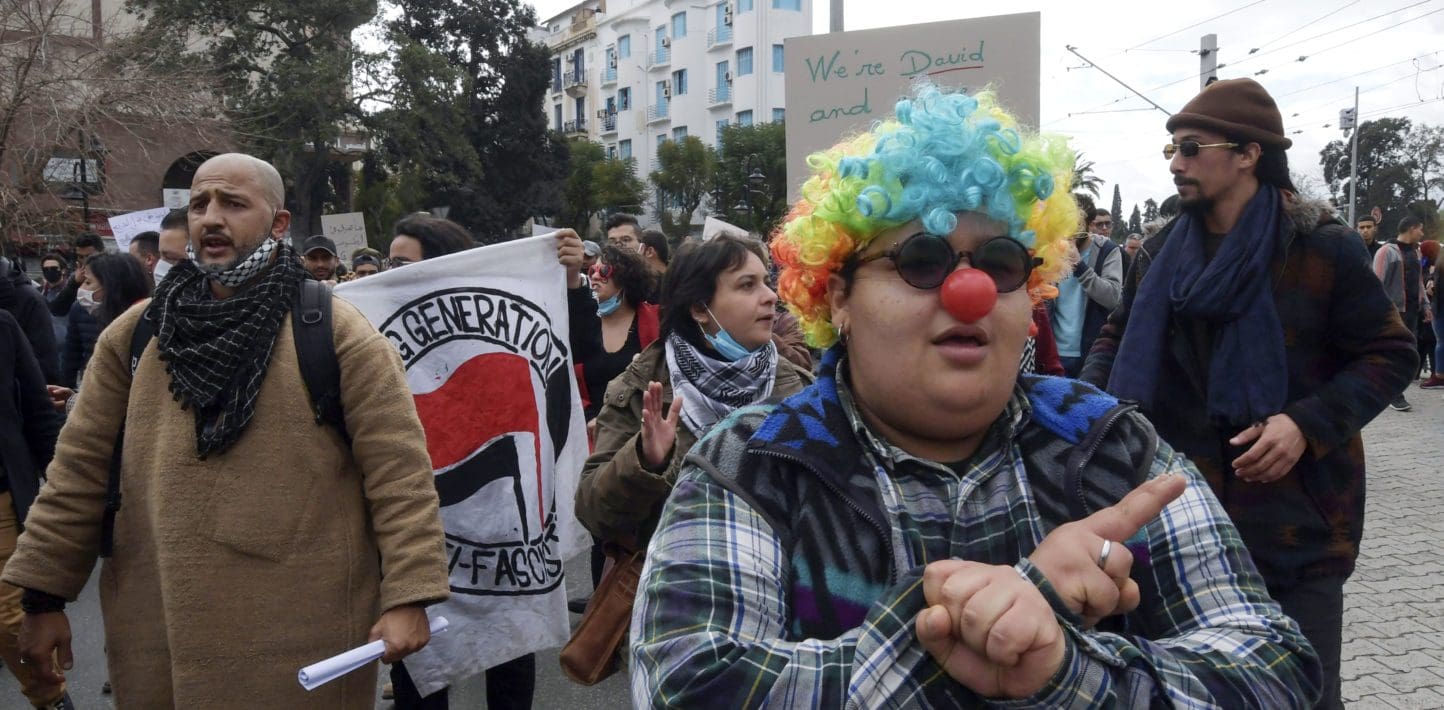 LGBTI people continued to be arrested and prosecuted under laws that criminalize consensual same-sex sexual relations, “indecency” and acts deemed “offensive to public morals”. According to DAMJ, the Tunisian Association for Justice and Equality, between January and October 2020, courts convicted at least 15 men and one woman under Article 230 of the Penal Code, which criminalizes “sodomy”.
LGBTI people continued to be arrested and prosecuted under laws that criminalize consensual same-sex sexual relations, “indecency” and acts deemed “offensive to public morals”. According to DAMJ, the Tunisian Association for Justice and Equality, between January and October 2020, courts convicted at least 15 men and one woman under Article 230 of the Penal Code, which criminalizes “sodomy”.
Transgender people faced police harassment and continued to live with the risk of arrest under vague “public decency” articles of the Penal Code, including Article 226bis.
In October 2021 Badr Baabou (@BadrBaabou9), a human rights defender and LGBTI rights activist was violently assaulted by police officers in downtown Tunis. Amnesty International released an Urgent Action on this case.
Rania Amdouni, a feminist LGBTI rights activist and President of the association Chouf Minorities, was verbally abused by a police officer in August 2020 to be then arrested in March 2021. Rania Amdouni’s arrest and prosecution send a chilling message to activists who face harassment that if they dare to come forward to report police abuse they risk being turned from victim to accused.
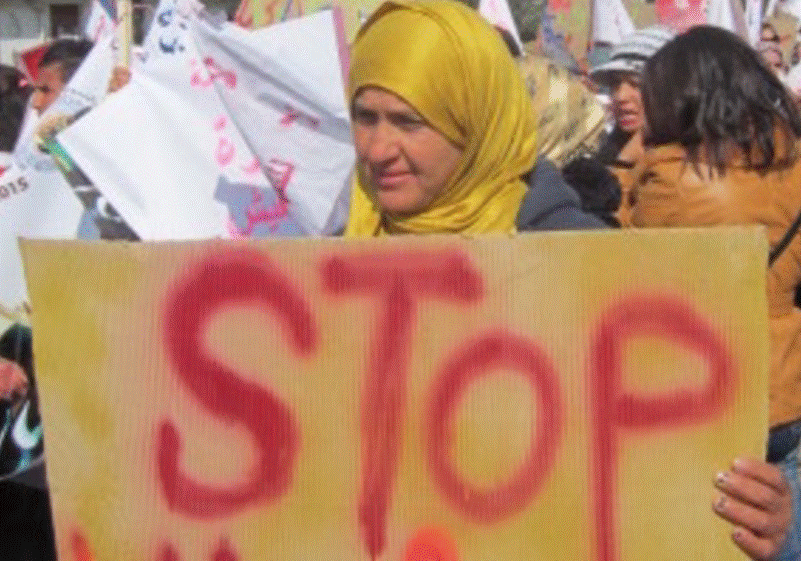 Tunisian women continue to experience high levels of violence. According to a survey from the Ministry of Women in 2021, at least 47 percent of women experienced domestic violence in their lifetime.
Tunisian women continue to experience high levels of violence. According to a survey from the Ministry of Women in 2021, at least 47 percent of women experienced domestic violence in their lifetime.
On 15 March 2020, the Supreme Judicial Council postponed all civil case hearings, including family law cases, on the grounds that all but “emergency or necessary” court proceedings were suspended. This hindered women’s access to justice because “emergency” cases as specified by the Ministry of Justice and the Supreme Judicial Council did not take into account the situation of women as they excluded matters relating to domestic abuse, custody of children, alimony and protective measures dealt with by a family judge.
According to the UN Entity for Gender Equality and the Empowerment of Women, helplines and shelters for survivors of violence reported a sharp increase in calls for help and requests for emergency shelter during the pandemic. Between 23 March and 31 May 2020, 9,800 calls were recorded on the Ministry of Family’s toll-free numbers, nine times more than usual. Of these, 2,700 concerned cases involving violence. According to women’s rights organizations, police failed in many cases to provide the necessary response to women at risk of domestic violence during lockdown.
Trials of people accused of human rights violations perpetrated between 1956 and 2013, referred by the Commission, continued before specialized criminal chambers, albeit at a slow pace with frequent adjournments.
Victims, and relatives of victims who had died, continued to await implementation of the reparation programme set up by the Truth and Dignity Commission. The government established a reparations fund in June that was activated on 24 December 2020. The reparations included financial compensation, rehabilitation, professional integration or education, the restitution of rights and official apologies.
The first hearing in the trial of customs officials accused of killing Aymen Othmani in 2018 was held on 21 January at the Tunis II Court of First Instance. The two officials charged with manslaughter and three others charged with failure to provide assistance were not present at the hearing. Aymen Othmani died in Sidi Hassine neighbourhood of Tunis, the capital, after customs officials fired live bullets during a raid on a contraband warehouse. According to the forensic report, Aymen Othmani was shot in the back and upper leg.
Authorities continued to arrest and detain, without legal grounds, undocumented migrants and asylum-seekers. At least 50 migrants from sub-Saharan countries were detained arbitrarily between March and September 2020 in the Ouardia Reception and Orientation Centre in Tunis. In June 2020, a group of 22 migrants detained in the Centre filed an urgent complaint before the Tunis Administrative Court challenging their arbitrary detention. On 10 July, the Court issued an order to suspend the detention of the migrants. The Ministry of Interior gradually released the detainees between July and September. The Ouardia Centre continued to receive migrants and asylum-seekers, and remained overcrowded with at least 50 detainees sharing five rooms, two bathrooms and a communal eating area. These conditions made it impossible to prevent the spread of COVID-19, posing a grave risk to the health of all those who worked and stayed there.
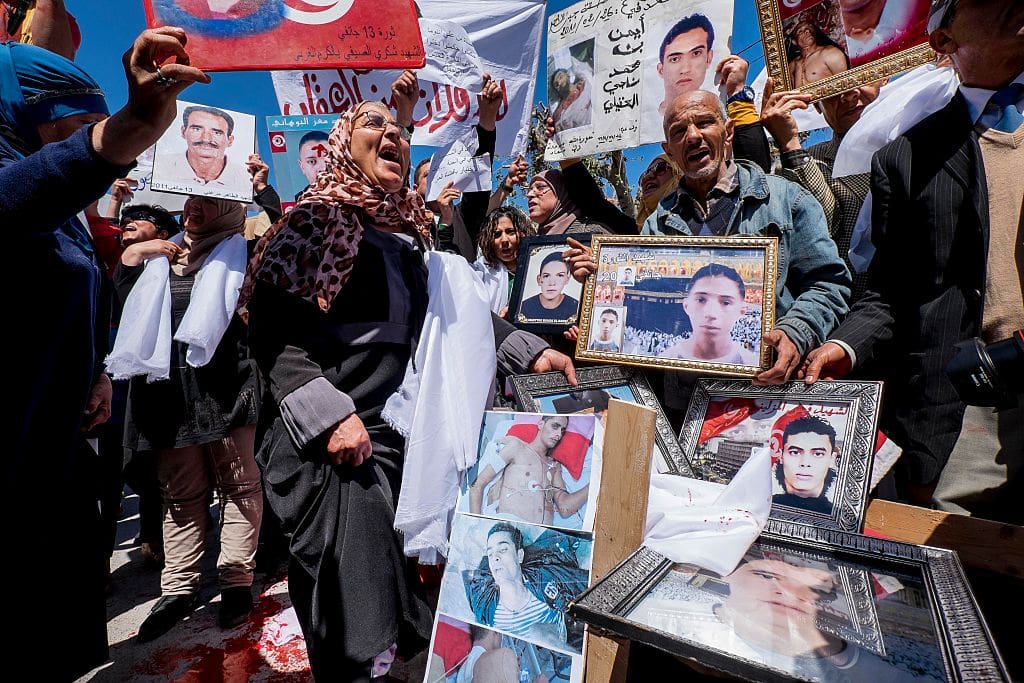 See our gallery at the bottom with stories about the Truth and Dignity Commission.
See our gallery at the bottom with stories about the Truth and Dignity Commission.
On 24 June 2020, and after a delay of a year, the government finally published in the official gazette the report of the Truth and Dignity Commission, the entity that looked into human rights violations perpetrated between 1956 and 2013. The report exposed the multi-layered and intricate system of oppression and corruption prevalent in Tunisia for 60 years and made recommendations for reform.
Trials of people accused of human rights violations perpetrated between 1956 and 2013, referred by the Commission, continued before specialized criminal chambers, albeit at a slow pace with frequent adjournments.
Victims, and relatives of victims who had died, continued to await implementation of the reparation programme set up by the Truth and Dignity Commission. The government established a reparations fund in June that was activated on 24 December. The reparations included financial compensation, rehabilitation, professional integration or education, the restitution of rights and official apologies.
The first hearing in the trial of customs officials accused of killing Aymen Othmani in 2018 was held on 21 January at the Tunis II Court of First Instance. The two officials charged with manslaughter and three others charged with failure to provide assistance were not present at the hearing. Aymen Othmani died in Sidi Hassine neighbourhood of Tunis, the capital after customs officials fired live bullets during a raid on a contraband warehouse. According to the forensic report, Aymen Othmani was shot in the back and upper leg.
Also, victims continue to face an uphill struggle in their quest for justice and reparation for the unlawful and excessive use of force and other grave human rights violations committed between 17 December 2010 and 14 January 2011, when President Ben Ali relinquished power and fled Tunisia. After 10 years we published a series of recommendations for the government to follow.
Death sentences were handed down; there were no executions. The country is abolitionist in practice as it retains the death penalty in law, but hasn’t executed for at least 10 years. Unfortunately, current President Saïed said he was in favour of resuming executions during a National Security Council meeting.
Tunisia’s vaccine rollout began in March 2021 but has been undermined by a lack of transparency, political interference, delays in vaccine shipments and a failure to take into consideration human rights vulnerabilities in selection of priority groups. Human rights must be considered when deciding who to prioritize.
In December 2021 we called on the authorities to halt the implementation of a Covid-19 decree-law that will deny anyone aged 18 or above without a vaccine pass access to many public and private spaces, ban them from working in the public-sector or salaried private-sector jobs, and – if they are Tunisian citizens – bar them from travelling abroad.
Between March and September 2020, health workers in hospitals in Kasserine, Sfax, Tunis and other governorates staged protests against the authorities’ failure to protect them against COVID-19 at work. The Health Workers Union protested against the lack of sufficient personal protective equipment (PPE) in health facilities and criticized the government for failing to address their needs. In response to this, in September, the union and the Ministry of Health reached an agreement that included a commitment from the government to provide PPE for health workers, consider COVID-19 an occupational disease and give health workers priority in COVID-19 testing procedures.

Good news on Noureddine Bhiri and Fathi Beldi
On March 9th, Noureddine Bhiri and Fathi Beldi were released after being detained for more than two months. The Interior Ministry said the two officials were released to allow the judiciary to “complete the necessary investigations and judicial procedures.”
At the beginning of 2022, we campaigned for their release after they were arrested on December 31st 2021, taken to undisclosed location without being formally charged. Nor have they had any access to their lawyers or been granted the opportunity to challenge their detention before a judicial authority. We like to think that our action contributed to their release!
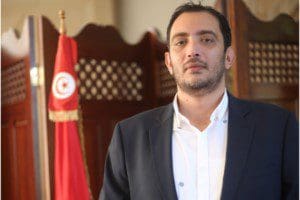
Good news on Yassine Ayari
On October 27 a military court dismissed one of Yassine Ayari’s cases, but many more cases are pending. We currently have an urgent action for his remaining cases.
In fall 2021 and winter 2022 we campaigned for Yassine Ayari, an outspoken parliamentarian and whistle-blower who exposed several corruption cases in Tunisia, has multiple prosecutions against him following his statements criticizing the government. He has just served a 2-months sentence by a military court for a 2018-Facebook post criticizing the army.
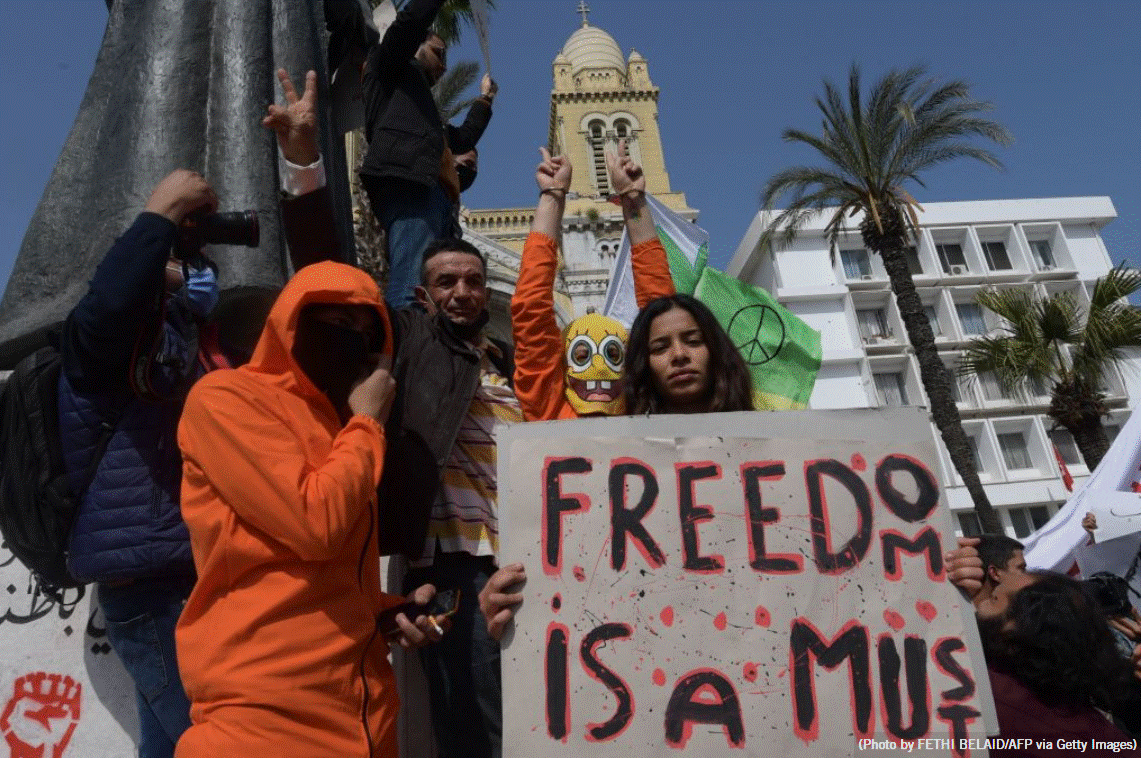
Immediately scrap plans for new restrictions on civil society organizations
Plans for new restrictions including restoring a Ben Ali era requirement for government authorization before an organization can legally operate must immediately stop. Civil Society organizations are an essential internal actor for providing essential services to the public and holding the government accountable. Civil Society Organizations should be promoted rather than threatened!
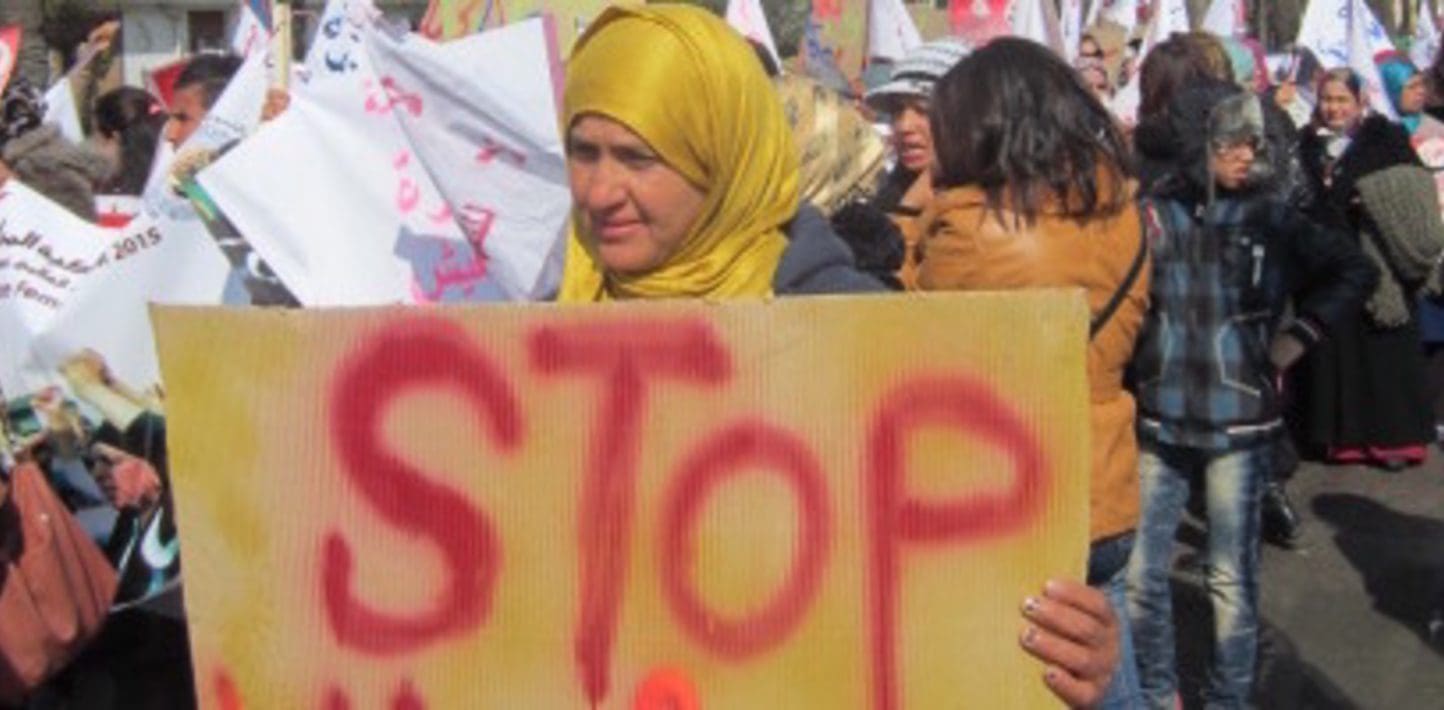
The tragic truth about domestic violence
Tunisian women continue to experience high levels of violence. According to a survey from the Ministry of Women, at least 47 percent of women experienced domestic violence in their lifetime.
Stories from the Truth and Dignity Commission











